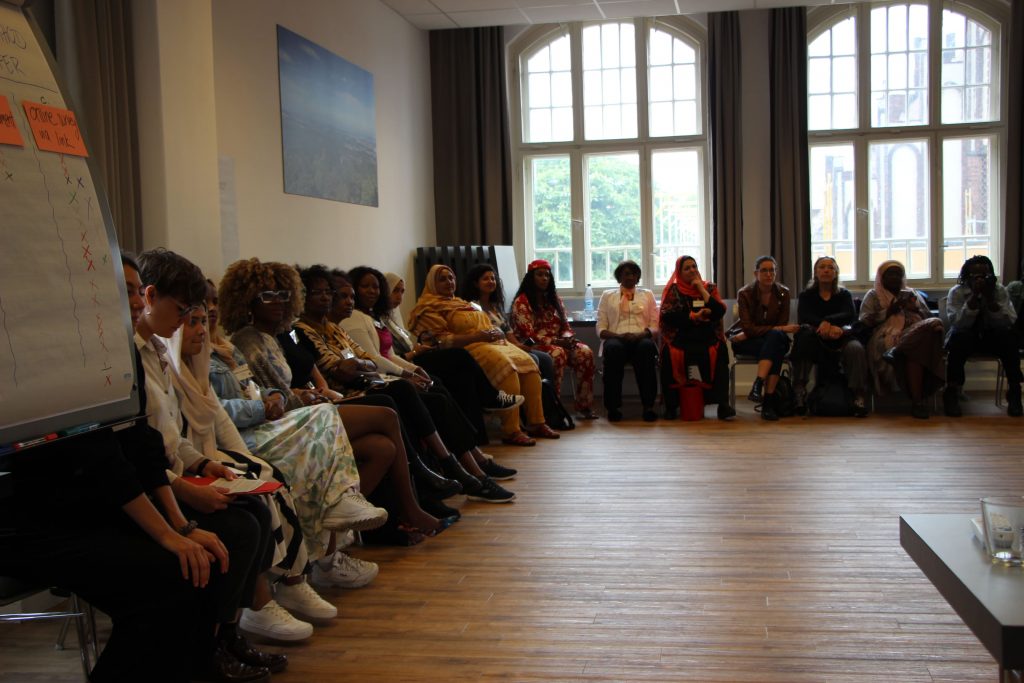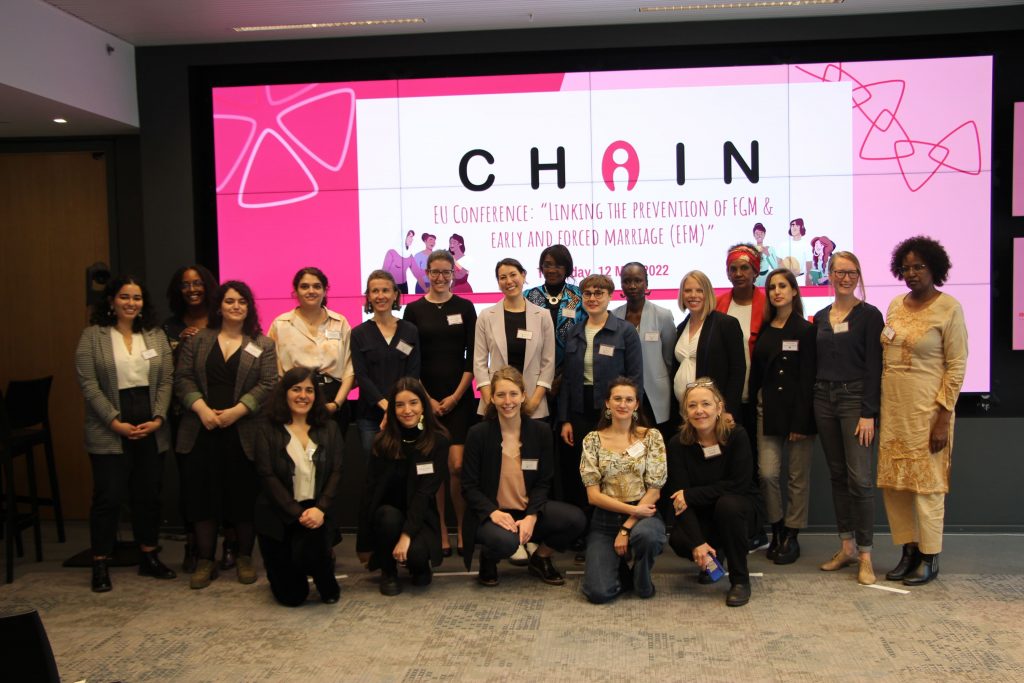
Two years of CHAIN (2020-2022)
The CHAIN project was born with one goal: “Link prevention between female genital mutilation and early forced marriage in Europe”.
Funded by the European Commission, it has enabled us to work between 2020-22 with partner organizations TERRE DES FEMMES (Berlin, Germany), Actionaid Italia (Italy), Equipop (France), and End FGM EU (Belgium) to strengthen the prevention, protection and support for survivors of gender-based violence. Through capacity development, community empowerment and awareness, while trying to favor scenarios for dialogue and transfer the concerns and needs of the community to the political level.
A bit of context…
Female genital mutilation (FGM) and forced marriage (FM) are serious human rights violations committed against girls and women. FGM and FM represent two forms of gender violence that promote gender inequality, control and restrict female sexuality, and violate the sexual and reproductive rights of girls and women. FGM is usually practiced on girls between 0 and 15 years old, while forced marriage mainly affects adult women and adolescents.

What makes CHAIN special?
One of the most interesting features of the method used in CHAIN for the prevention of female genital mutilation and forced marriage is empowerment through information and training.
The community itself as an engine of change. Involving the women themselves, who are seen as experts by the people we have addressed with this campaign, has been key, since they have become trainers and mediators of groups of people from countries where these practices are still in force.
What have we done in Spain?
The project has had to adapt to the health situation caused by COVID19, a situation that has been especially relevant when it comes to bringing together the people we wanted to address. However, we have made an effort to meet the proposed objectives.
1st year:
- Training of eight community trainers : seven women and one man.
Subjects and areas: female genital mutilation, forced marriage, legal framework of the country, women’s rights , sex and gender, sexual and reproductive health, self-care, didactics, social intervention strategies and communication skills.
- Creation of an intervention manual available in various languages.
2nd year:
The community trainers themselves carry out the different activities. They trained 149 professionals from different fields (doctors, intercultural mediators, social workers, teachers, lawyers, police officers, etc.). They have also done awareness-raising work, reaching 137 people in community events and 25 community leaders.
We also held 21 empowering events to discuss, raise awareness and report on:
- The link between female genital mutilation (FGM) and forced marriage (MF)
- Equality between women and men
- The need to eliminate all types of gender-based violence
- The importance of abandoning harmful traditions
- The specific needs of women who come to our workshops
- sexual and reproductive health
- The myths surrounding female genital mutilation and forced marriage
- The autonomy of women

On May 12, 2021 we hold an international conference as part of the CHAIN project. It took place in Brussels in a hybrid format. The community trainers and people involved in the project spoke about what has been achieved, the challenges, the impressions and the important lessons learned from the implementation of the project. This conference was attended by members of the European Parliament, with the aim on our part that harmful practices be addressed at European level.
What have all the organizations achieved together, at a European level?
- 32 community trainers trained in FGM and MF have been trained
- 768 key professionals from public institutions and the third sector trained in these topics and intervention procedures
- 96 community leaders (religious/traditional leaders, community elders) sensitized about gender-based violence and these harmful practices
- 4,000 community members were reached through awareness activities
The purpose of the project?
- Improve knowledge about female genital mutilation and forced marriage and their interconnection.
- Improve interdisciplinary cooperation, and provide more effective support to survivors of these procedures.
